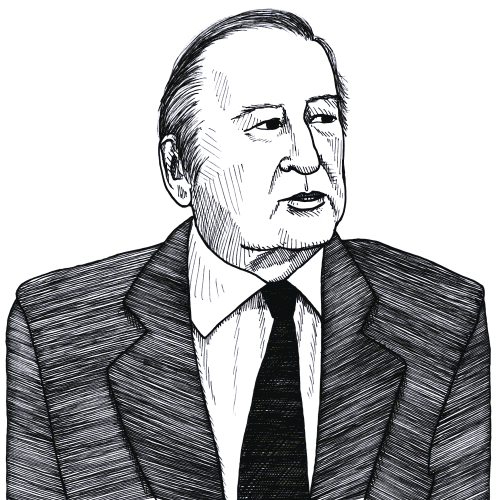Liberty Matters
Do-It-Yourself Enforcement
 Preamble: When my “tricks or treats” comments on his work were written, Anthony de Jasay was suffering from a health problem, and I did not dare to disturb him. Eventually I could not resist the temptation to mail a copy of a previous version of my essay to him, and I recently took the opportunity to read the texts published so far in the Liberty Matters column to Jasay, who is practically blind. Here I am now reporting, as my “master’s voice” almost entirely in his own words, his comments on certain aspects of the discussion.
Preamble: When my “tricks or treats” comments on his work were written, Anthony de Jasay was suffering from a health problem, and I did not dare to disturb him. Eventually I could not resist the temptation to mail a copy of a previous version of my essay to him, and I recently took the opportunity to read the texts published so far in the Liberty Matters column to Jasay, who is practically blind. Here I am now reporting, as my “master’s voice” almost entirely in his own words, his comments on certain aspects of the discussion.Under the prevailing constraints Jasay chose to focus on the absolutely crucial topic of enforcing conventions without the state. In making the system of conventions the most important component of his social theory, Jasay originally chose to provide the enforcement of conventions with a satellite convention system. It functioned as a satellite institution taking care of free riding. Jasay now reminded me and the other discussants who are presently participating in the Liberty Matters forum concerning his work that he later found that an enforcement based on satellite conventions is dangerous. In view of the principal-agent problem, it may be both ineffective and unsuitable to serve as a basic institution of ordered anarchy.
The enforcement function should instead be fulfilled by a do-it-yourself arrangement, where the players in the convention add various approaches to repeal free-riding, the cost that they are willing to incur being some function of the danger that the aggressor who is free-riding on the institution of property may succeed in violating the property of the defender. The marginal cost a defender is willing to incur at most corresponds to the potential loss inflicted on him by the free-riding aggressor (after weighting it with the appropriate success probability of aggression and defence).
If marginal costs are prohibitive, the convention cannot survive. Since the property holder is defending his own property, the marginal damage of an aggression is fully borne by him, and the resources he devotes to defense will increase correspondingly. At the same time, the free-rider incentive will correspondingly be reduced. The resources devoted to deter the free-rider will have beneficial effects on the protection of property in general.
Copyright and Fair Use Statement
“Liberty Matters” is the copyright of Liberty Fund, Inc. This material is put on line to further the educational goals of Liberty Fund, Inc. These essays and responses may be quoted and otherwise used under “fair use” provisions for educational and academic purposes. To reprint these essays in course booklets requires the prior permission of Liberty Fund, Inc. Please contact oll@libertyfund.org if you have any questions.